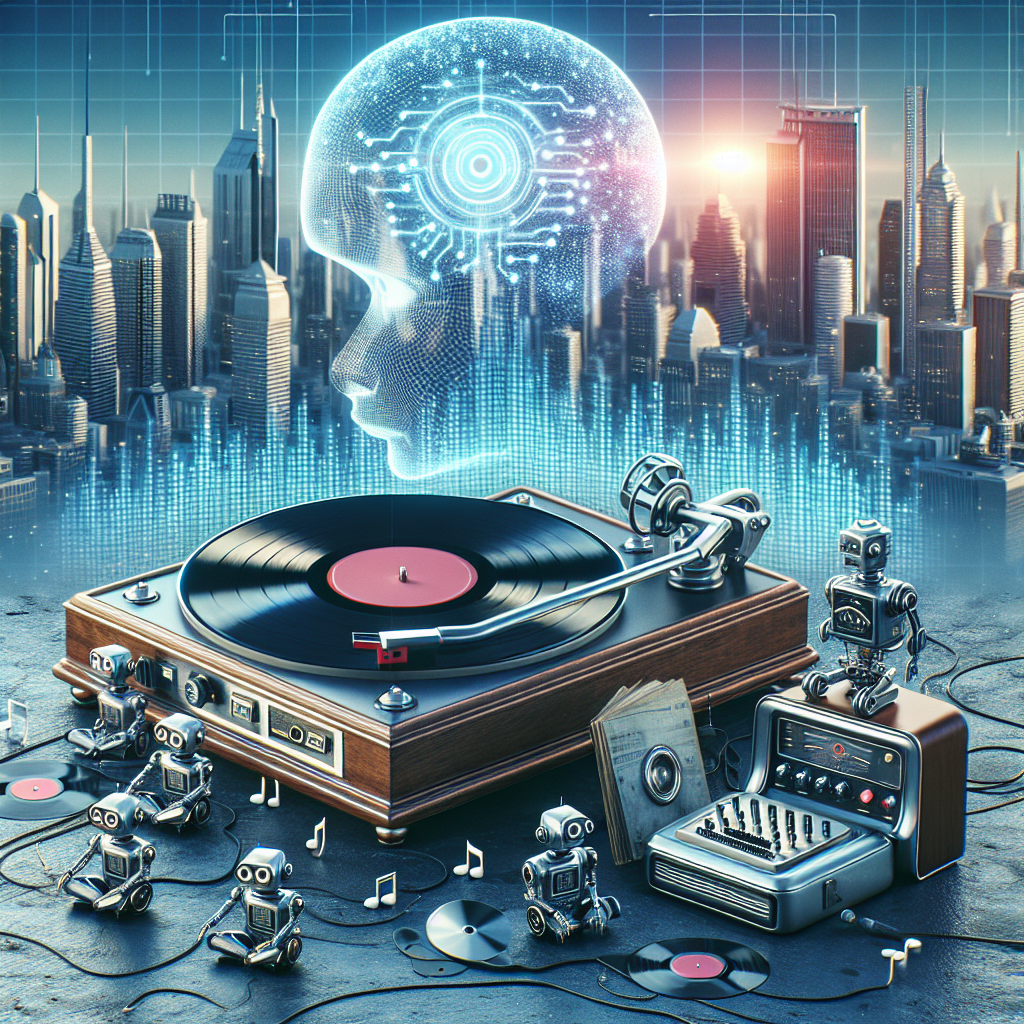The Potential of AI in Music Preservation
Music is a universal language that has the power to transcend time and space. It is a cultural artifact that reflects the history, emotions, and experiences of a society. However, with the rapid advancement of technology, the preservation of music has become an increasingly challenging task. Traditional methods of music preservation, such as recording on vinyl records or CDs, are not always reliable and can degrade over time. This is where artificial intelligence (AI) comes into play.
AI has the potential to revolutionize the way music is preserved and archived. With its ability to analyze, categorize, and preserve vast amounts of data, AI can help ensure that music from all genres and eras is not lost to time. In this article, we will explore the potential of AI in music preservation and how it can help safeguard our musical heritage for future generations.
AI in Music Preservation
AI has already made significant strides in the field of music preservation. One of the most promising applications of AI in this area is in the restoration of old recordings. AI algorithms can analyze and clean up audio tracks, removing noise, pops, and other imperfections that may have accumulated over time. This can help restore the original sound quality of a recording and make it more accessible to listeners.
Another area where AI is making a difference in music preservation is in the categorization and organization of music archives. AI algorithms can analyze and categorize music based on its genre, artist, era, and other metadata. This can help music archivists and historians easily search and access music from different time periods and genres, making it easier to study and appreciate the diversity of musical styles.
AI can also help in the creation of virtual libraries and museums dedicated to music preservation. By digitizing music archives and using AI algorithms to curate and present the content in an engaging way, music lovers around the world can access and explore rare and obscure music recordings that may have otherwise been lost or forgotten.
Challenges and Limitations
While AI has the potential to revolutionize music preservation, there are also challenges and limitations that need to be addressed. One of the biggest challenges is the need for high-quality data to train AI algorithms. Music archives are often fragmented and incomplete, making it difficult for AI algorithms to accurately categorize and analyze music recordings. In addition, copyright issues can also pose a challenge, as some music recordings may be protected by copyright laws, making it difficult to digitize and share them.
Another limitation of AI in music preservation is the risk of bias in the algorithms. AI algorithms are only as good as the data they are trained on, and if the data is biased or incomplete, the algorithms may produce inaccurate results. This can lead to misclassification of music recordings and incorrect categorization of artists and genres.
Furthermore, AI algorithms are not infallible and can make mistakes. In the context of music preservation, this can lead to the misidentification of artists or genres, which can have serious implications for the accuracy and integrity of music archives.
FAQs
Q: Can AI algorithms accurately analyze and categorize music recordings?
A: AI algorithms can be trained to analyze and categorize music recordings, but their accuracy depends on the quality of the data they are trained on. With high-quality data and proper training, AI algorithms can accurately categorize music recordings based on their genre, artist, era, and other metadata.
Q: How can AI help in the restoration of old recordings?
A: AI algorithms can analyze and clean up audio tracks, removing noise, pops, and other imperfections that may have accumulated over time. This can help restore the original sound quality of a recording and make it more accessible to listeners.
Q: What are the limitations of AI in music preservation?
A: Some limitations of AI in music preservation include the need for high-quality data to train algorithms, the risk of bias in the algorithms, and the potential for errors in analysis and categorization. Additionally, copyright issues can also pose a challenge to the digitization and sharing of music recordings.
Q: How can AI be used to create virtual music libraries and museums?
A: AI algorithms can be used to digitize music archives and curate the content in an engaging way, creating virtual libraries and museums dedicated to music preservation. By using AI to categorize and present music recordings, music lovers around the world can access and explore rare and obscure music from different time periods and genres.
In conclusion, AI has the potential to revolutionize music preservation by helping to restore old recordings, categorize and organize music archives, and create virtual libraries and museums dedicated to music preservation. While there are challenges and limitations to be addressed, the future looks bright for AI in music preservation. With continued research and development, AI can help safeguard our musical heritage for future generations to enjoy.

